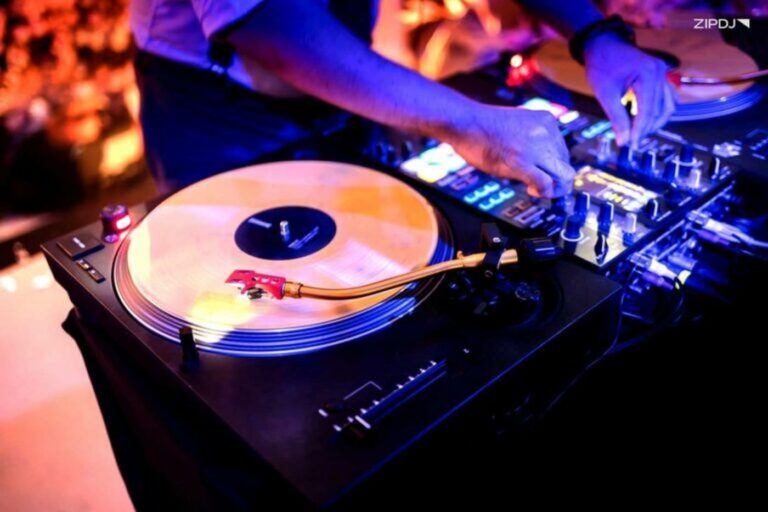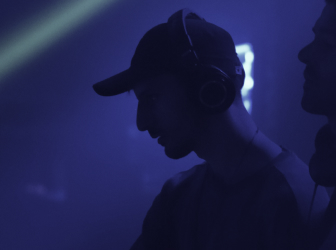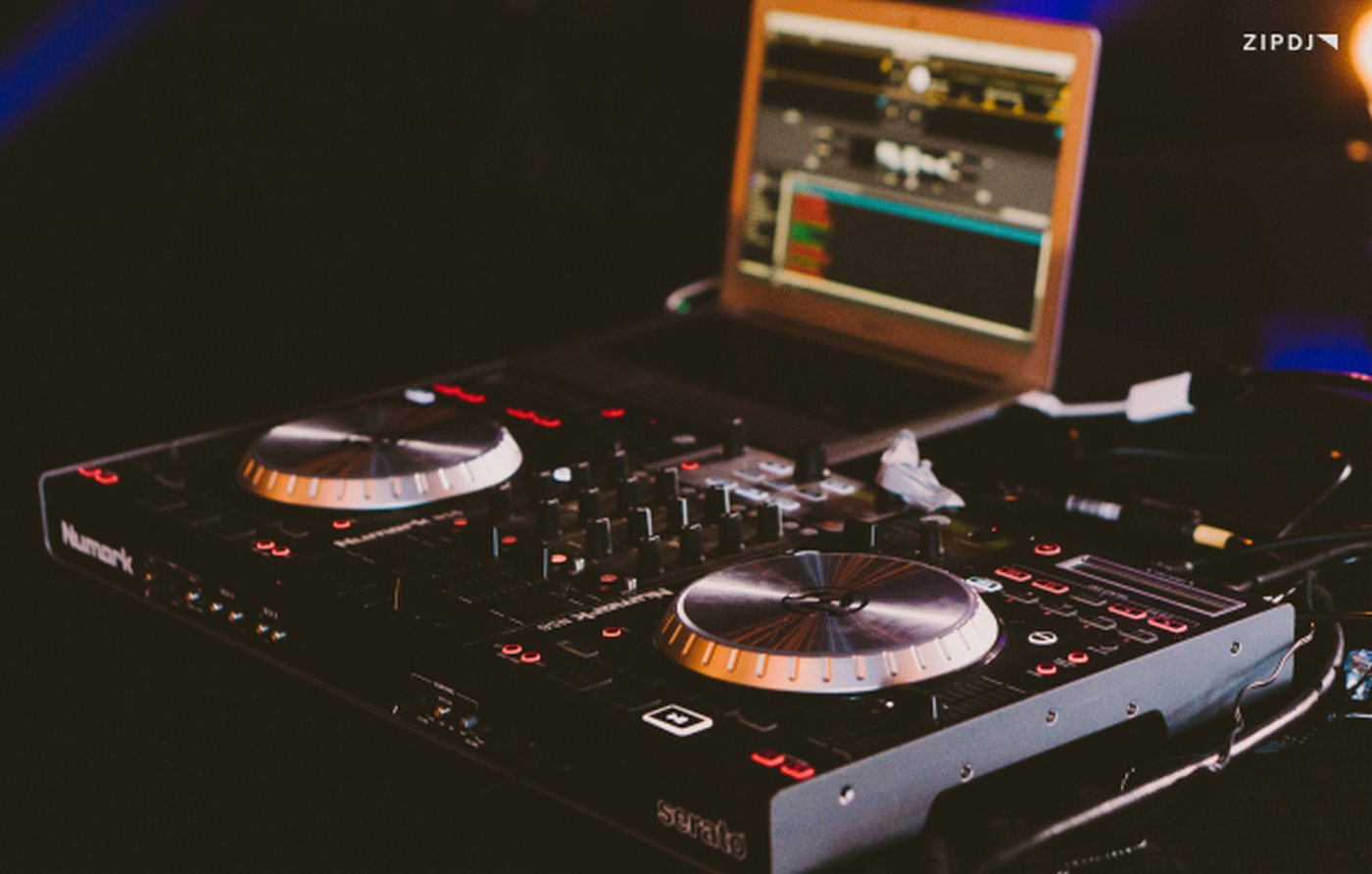What Is A Turntable? Turntable Vs Record Player

Understanding the difference between a turntable vs record player will help you to make the right decision when it comes to spending a large sum of cash on audio equipment.
Sound quality, customization, and the functionality you’re looking for will all impact your decision, whether you’re looking to become a club DJ or a more casual device for home listening.
In this guide, we’ll explain the difference between direct-drive turntables and belt-drive turntables, and everything else you need to know to make the best choice for your needs.

What Is A Turntable? Turntable Vs Record Player in 2025
Before you begin playing records, you’ll need to pick up either a turntable or a record player while also being aware of additional components that may be required.
We’ve covered all the core considerations to help you make this decision, from whether you’ll need a built-in phono preamp and external speakers to the functionality and price range.
So, now that you know our criteria, here’s everything you need to know about the difference between a turntable vs record player in 2025:
What Is A Turntable?
There are two principal contexts in which the word “turntable” can be used, either to denote an element of a record player or to describe a standalone unit.
The first context, which uses the word as an integral component of a record player, references the platter on which a record sits as well as the motor, tonearm, and cartridge.
It’s these basic elements and components mounted onto a base – otherwise known as a plinth – that defines a turntable as a standalone unit.
What’s lacking in comparison to a record player are built-in speakers and an internal amplifier, which requires users to connect a turntable to external components.
Turntables feature a dedicated phono output, through which they can be connected to a mixer, which in turn is connected to an amplifier and speakers.
It’s this combination of equipment that is widely used throughout the history of DJing, reflecting a tried-and-trusted setup that has been used for mixing over many decades.
This setup also makes them highly customizable, since the user can use whatever amplifier and other external components they desire for optimal results.
Turntable Advantages
As mentioned, one of the key advantages of using a turntable vs record player is the option to output the turntable to any mixer and amplifier combination.
As a consequence of this, turntables have a greater potential for superior sound quality, provided they are used in conjunction with high-end hi-fi equipment.
Additionally, turntables can be upgraded internally, changing the needle, cartridge, and other elements to better models for more responsive performance.
This makes them the go-to equipment for anyone learning how to DJ with vinyl records, particularly if they’re exploring scratch DJing techniques.
If you’re not happy with the responsiveness of your tonearm or other elements of the turntable, there are many options you have to upgrade the device.
DJing turntables also feature adjustable pitch to allow for mixing records at different beats per minute, using the pitch sliders to increase and decrease speed.
This allows you to use a turntable in conjunction with other equipment, such as CDJs and DJ controllers, to include vinyl records in otherwise digital DJ sets.
Turntable Disadvantages
The many advantages of turntables account for some of their core disadvantages, not least, the additional equipment needed to use them and the related costs.
Since turntables require separate speakers and an amplifier or preamp, the budget required to get them up and running can be significantly higher than with record players.
At the same time, this requirement for additional components can make them more complicated to set up and use, which can be daunting for some.
Popular models of turntables used for DJing can also be very expensive when compared to the range of record players available, which may deter casual users.
It also needs to be considered that, should you be considering turntables for DJing, you’ll need to buy two turntables if you want to mix entirely with vinyl records.
Higher quality Vestax and Technics reference turntables aren’t cheap, costing considerably more than most amateur DJ budgets can run to/
With that said, there is still a place for turntable mixing in the future of DJing, so it’s an investment worth considering if you’re committed to the craft.
What Is A Record Player?
While a turntable is typically used for DJing since it’s capable of pitch adjustments and other DJing techniques, record players preceded the invention of turntables.
The history of record players and turntables began with the invention of the phonautograph, followed by the gramophone and, later, the record player as it’s known today.
Modern record players consist of the core elements of a turntable but also bring in other equipment such as an amplifier and speakers into the device.
This makes them more affordable than their turntable counterparts, with everything you need to play music included in one package ready to plug in and play.
These styles of record players don’t require additional cables or external components, and sometimes also come with other handy features included.
USB connectivity, Bluetooth, and other add-ons are sometimes rolled into the same package along with a record player to give users more options.
Some record players resemble full hi-fi units with radios, CD players, and even cassette decks for a complete suite of music formats available to use.
Intended for a more casual audience that isn’t using record players to DJ with, they’re a great all-in-one unit you can use to explore your record collection at home.
Record Player Advantages
The first and most obvious advantage of record players is the fact they offer an all-in-one solution that allows users to listen to records instantly.
As well as being incredibly user-friendly, record players offer a great listening experience for music fans who have limited space for additional components.
While they lack the pitch controls of dedicated DJ turntables, if you’re looking into how to become a radio DJ, you can use a record player for your shows.
You won’t need to learn how to use a record player, and can simply drop any vinyl records onto the plate and press play, and it’ll work fine.
Some all-in-one record players are also portable, with the entire unit housed in a case that you can pack up and take with you elsewhere.
Dedicated record players are also generally more affordable than turntables, particularly when you factor in the additional components required for the latter.
This makes them the perfect choice for budget-conscious consumers who don’t want to mix records and have to deal with complicated setup processes.
Record Player Disadvantages
The simplicity of a record player is, to some, its primary drawback, removing the option to upgrade the device’s elements over time.
Record players can’t be customized, so what you see when you open the box is what you get, meaning you need to be sure it offers everything you’ll need before you buy.
One aspect that this lack of customization significantly affects is the overall sound quality, which often fails to match the audio quality delivered through a bespoke setup.
While many record player equipment sounds good, it will generally fall short of what you can get when investing in a dedicated amplifier and speakers on a larger budget.
A record player also lacks the refinement options of its turntable counterparts, for example, the ability to fine-tune the tracking force of the player.
This tracking force refers to the weight the stylus applies to the surface of the record while it’s playing, and preventing the needle from skipping during play.
Combined with the inability to alter the alignment of the cartridge, this means record players can sometimes deliver inferior playback with potential damage to records.

Key Differences Between Record Players & Turntables
Now that we’ve broken down some of the core considerations of record players and turntables, it’s time to take a look at the key differences between each format.
We’ve broken each key difference down into the functionality and design elements, as well as the overall audio quality and what you can expect to pay.
Ultimately, whether you opt for a record player or a turntable, it will depend on your budget range and what functions you need from your device.
Make sure you thoroughly research your options before you invest your hard-earned cash in a product, so you know you’re getting the best possible sound for your budget.
Functionality & Design
The overall design of a record player is notably different from a turntable, delivering a more user-friendly experience thanks to its integrated components.
It’s a more convenient set up, with everything from the amplifier and speakers rolled into one device for ease of use and no learning curve associated with it.
In contrast, turntable designs are much sleeker and minimalist, with only the crucial components for playing vinyl records included.
As such, turntable users have the option to connect it to their preferred amplifier, speakers, and mixer, which makes it the only choice for DJing professionally.
This extends to the functionality of turntables, which thanks to their direct drive mechanism, can be used to adjust pitch and mix one record into another.
Anyone who is learning how to DJ in clubs will begin with turntables since these are specifically designed to be used for mixing music through a sound system.
Audio Quality
Since turntables are designed to be used with external components, they are inherently more open to higher-quality sound in conjunction with the best equipment.
This flexibility lends turntables more scope for outstanding audio quality, as anyone who has been to a leading nightclub or music festival can attest to.
Record players can still deliver a great audio experience, although their lack of customization options means you’ll have no options to upgrade in the future.
With that said, there are some models of record players that do feature external outputs to allow you to bypass the internal components and connect them to better amps.
Price
On balance, turntables are typically more expensive than the all-in-one solution offered by record players, particularly when you may need two for proper DJ mixing.
You also need to factor in additional components and hardware to use a turntable, with the cost of amplifiers, mixers, and speakers all increasing the required budget.
In contrast, modern record players can be picked up relatively cheaply, bringing all the required elements into a single unit and often including CD players and other formats.
Provided you’ve taken the time to test a record player out before you buy, it may be that it delivers capable audio performance for your home space.
Ultimately, your budget and requirements will dictate which one you go for, and if you are looking into DJing with turntables, you don’t have to buy the latest Technics to do so.
Turntables Or Record Players: Which Is Better?
As the evolution of DJ technology continues at a rapid pace, investing in the best hardware for your needs can feel like navigating a minefield.
Whether you go for a turntable or record player will depend on what you intend to use them for and how much money you have at your disposal.
If you’re a club DJ looking for the best possible sound and functionality, turntables offer all the tools to mix your sets in higher-quality audio.
For general music enthusiasts who want to play music at home, record players are a good way to dive into your vinyl collection without worrying about complicated set ups.
Summary
We hope you’ve found this breakdown of the difference between turntables and record players a useful starting point to help you choose the best device for your requirements.
Whether you’re looking to become a DJ and use turntables for scratching or just want something for casual use, this guide covers the core factors to help you spend your money wisely.
As technology continues to evolve, record players and turntables will deliver new and exciting features that will take your music experience in new and exciting directions.
Complement your vinyl records collection with a ZIPDJ subscription and access higher-quality files of the latest releases and remixes today.
Not a member ?
Join Today for Unlimited Music Downloads. Visit zipdj.com for more information.



